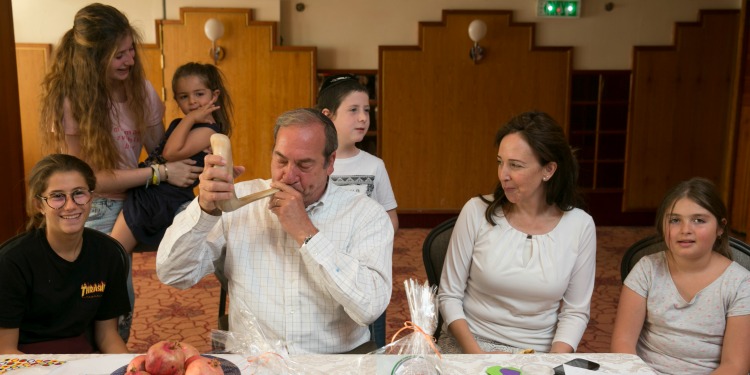The Head of the Year
The Fellowship | September 3, 2018

“Say to the Israelites: ‘On the first day of the seventh month you are to have a day of sabbath rest, a sacred assembly commemorated with trumpet blasts.’” — Leviticus 23:24
Jews around the world are entering the most holy time on the Jewish calendar, the High Holy Days. Beginning with Rosh Hashanah, the Jewish New Year, and ending ten days later with Yom Kippur, the Day of Atonement, this season is marked by intense reflection and repentance. This is one of 18 devotions focused on this holy season, exploring its meaning and the many lessons we can learn from this biblically mandated observance. To learn more, download our free study on the shofar, ram’s horn, that ushers in this holy season.
New Year’s Eve is generally a time for celebration. As we sweep out the old and welcome in the New Year, most people celebrate with festive parties. Some people will have a few drinks, others will dance, and everyone will relish the good times as we temporarily escape reality and our everyday lives. However, Judaism’s approach to the New Year is exactly the opposite. Instead of taking a step back from our reality, we zoom in on it. We don’t get lost in the festivities; instead, it’s through the celebration of Rosh Hashanah that we find ourselves.
Rosh Hashanah is loosely translated as “The Jewish New Year,” but that’s not what those words literally mean. Rosh is Hebrew for the word “head,” while Hashanah is Hebrew for “the year.” So, Rosh Hashanah literally means “The Head of the Year.” This isn’t just a difference in semantics; it has an entirely different meaning. Just as the head determines where and how the rest of our body will go, so too, does the beginning of the year determine how the rest of our year will proceed. This is a sobering thought, pregnant with possibilities – which is why the Jewish New Year is a time to be more in tune with our reality than ever.
An 18th-century rabbi named Shneur Zalman was once asked: “How are we to understand that God, the All-Knowing, said to Adam: ‘Where are you?’ after he sinned by eating the forbidden fruit.” The Rabbi replied, “Do you believe that the Scriptures are eternal and that every era, every generation, and every man is included in them?” “I believe this,” the man answered. “Well then,” said Rabbi Shneur Zalman, “in every era, God asks every person, ‘Where are you in your life? So many years and days of those allotted to you have passed, and how far have you gotten in your life?'”
According to Jewish tradition, on the first Rosh Hashanah of the world, Adam was created, sinned, and judged. It was on that day that God asked, “Where are you?” and it is on this day, every year, that God asks us the same question – and we need to provide an answer. We need to take a good look at where we have been and where we plan on going. We need to answer for the wrong turns we may have made and get back on track to where we want to be.
God already knows where we are – physically and spiritually. On Rosh Hashanah, we are the ones who need to take notice where we are, and most importantly, determine where we are headed.
